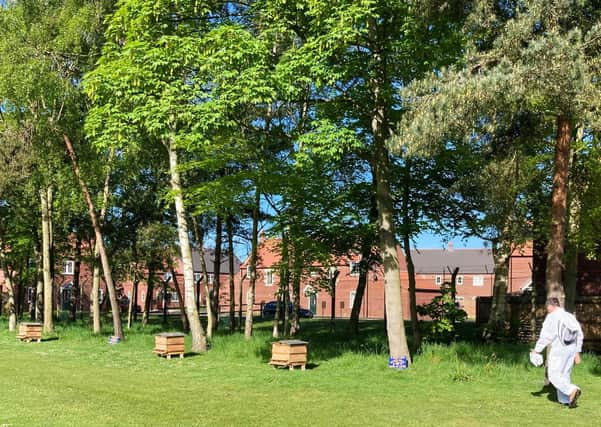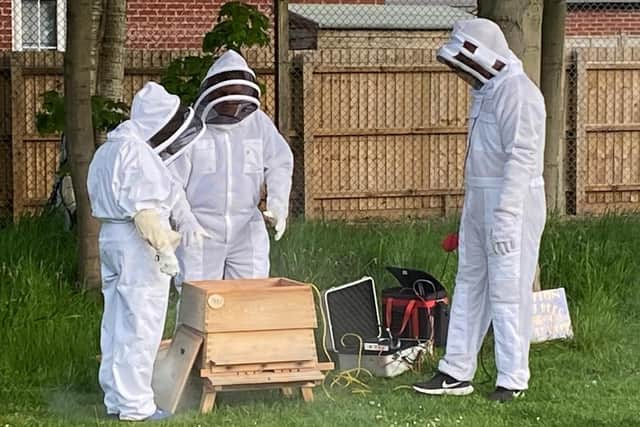RAF Coningsby base has been a ‘hive’ of activity


The BAE team will be looking after honeybees and will install six colonies by the end of summer, totalling around 60,000 bees.
The Honeybee Project was created by BAE systems engineer, Dorian Grassick, an active beekeeper outside of work.
Advertisement
Hide AdAdvertisement
Hide AdDorian said: “The Honeybee Project is not just about the wonderful bees themselves, it’s about preserving our environments and educating our community.


“It goes without saying that the environmental benefits of having these colonies is incredibly important.
“Another important benefit, and a particular passion of mine, is the health and wellbeing benefits that beekeeping provides.
“The growth of our apiary will allow the members of the beekeeping team to experience all aspects of beekeeping and conservation of their environment through the seasons.”
Advertisement
Hide AdAdvertisement
Hide AdGroup Captain, Matt Peterson, said: “I am incredibly grateful for everything the whole force does here at RAF Coningsby, and in the wider sense of mental wellbeing and specifically the bees who are the newest addition to the station.
“It is great to see how everyone has come together.”
The bees will produce honey which is required for feeding the colony through the colder winter months.
They will also produce beeswax which can be used in candle making and furniture restoration, as well as propolis, nicknamed bee glue, which they use to seal any draught in the hives and the glue has antibacterial properties.
A spokesperson for BAE said: “This is just one small way in which BAE Systems and our employees are helping to contribute to a Greener future.
Advertisement
Hide AdAdvertisement
Hide Ad“As a company, we’ve set ourselves a target to achieve net zero greenhouse gas emissions across our operations by 2030 and across our value chain by 2050, and have already begun reducing emissions at our sites across the UK through the use of solar panels and other renewable energy sources as well more efficient, cutting-edge manufacturing technology.”